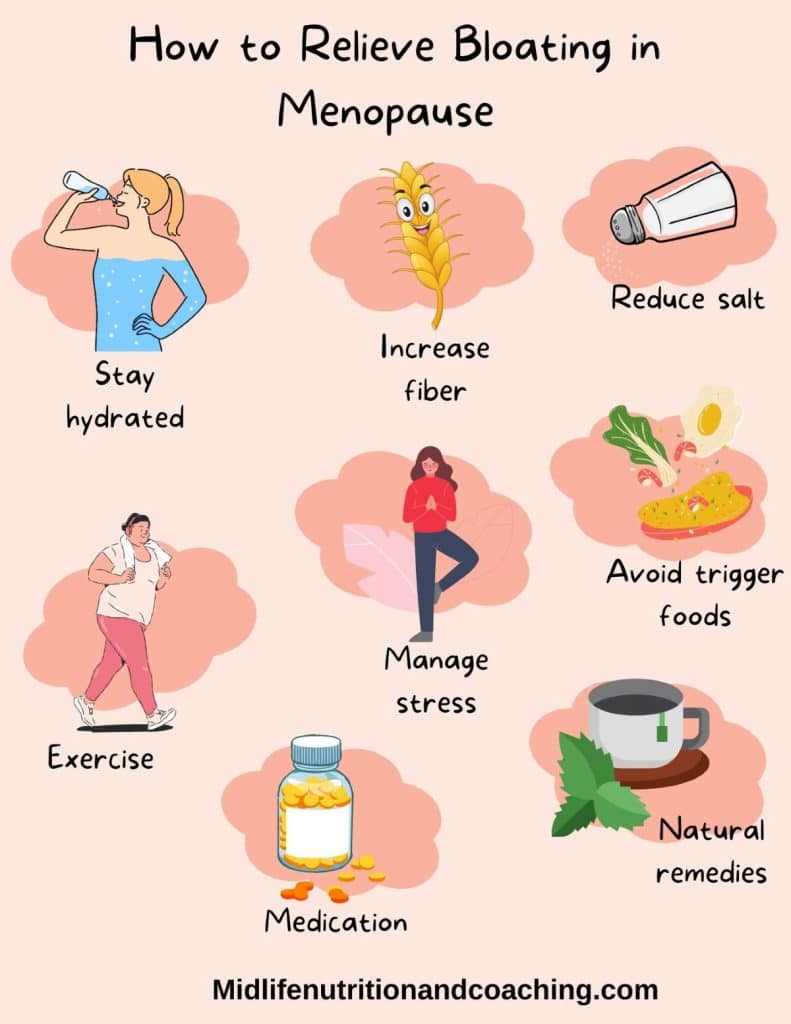18 Effective Ways to Reduce Bloating
Bloating is a common discomfort that many people experience, characterized by a swollen or tight feeling in the abdomen. While occasional bloating may be harmless, persistent bloating can indicate underlying health issues. Thankfully, numerous remedies and lifestyle adjustments can help alleviate and prevent bloating, both in the short and long term. This article outlines 18 strategies to combat bloating, offers insights into its causes, and provides FAQs for better understanding.

What Is Bloating, and Why Does It Happen?
Bloating occurs when gas builds up in the gastrointestinal (GI) tract, causing the abdomen to feel full, tight, or distended. Other contributors include fluid retention, hormonal changes, and digestive irregularities.
Common Causes of Bloating:
- Digestive Issues: Constipation, food allergies, and intolerances.
- Dietary Habits: High sodium intake, fizzy drinks, and low fiber consumption.
- Hormonal Changes: Often seen before or during menstruation.
- Medical Conditions: IBS, endometriosis, or bacterial overgrowth.
Quick Relief: How to Reduce Bloating Fast
1. Take a Walk
A short stroll can stimulate bowel movement, releasing trapped gas and reducing bloating. Regular physical activity promotes overall gut health.
2. Practice Yoga
Yoga poses such as Child’s Pose, Happy Baby Pose, or twists can massage the abdomen, easing gas and discomfort.
3. Try Peppermint Oil Capsules
Peppermint relaxes intestinal muscles, facilitating gas and stool movement. However, avoid it if you’re prone to heartburn.
4. Use Gas Relief Capsules
Over-the-counter simethicone-based medications can help expel trapped gas effectively.
5. Perform an Abdominal Massage
Gently massaging your abdomen in circular motions can promote bowel movement and ease gas buildup.
6. Sip on Ginger Tea
Ginger’s anti-inflammatory properties aid digestion and reduce bloating. Fresh ginger tea is an excellent option.
7. Take a Warm Bath
Soaking in warm water relaxes abdominal muscles and alleviates bloating-related discomfort.
Long-Term Solutions to Prevent Bloating
8. Gradually Increase Fiber Intake
Fiber prevents constipation but should be added to your diet slowly to avoid excess gas. Focus on low-FODMAP fiber-rich foods like spinach, zucchini, and blueberries.
9. Stay Hydrated
Replace carbonated beverages with water to avoid gas buildup. Adequate hydration also prevents constipation.
10. Avoid Chewing Gum
Chewing gum often leads to swallowing air, which can increase bloating. Opt for ginger or mint lozenges instead.
11. Exercise Regularly
Consistent physical activity regulates bowel movements and reduces water retention.
12. Eat Smaller, Frequent Meals
Large meals can overwhelm your digestive system. Smaller portions spread throughout the day minimize bloating.
13. Incorporate Probiotics
Foods like yogurt, kefir, and sauerkraut promote gut health by balancing intestinal bacteria, reducing bloating in the long run.
14. Limit Sodium Intake
Excess sodium leads to water retention, causing a bloated appearance. Reduce salt and processed foods.
15. Explore a Low-FODMAP Diet
Eliminating high-FODMAP foods, like onions and beans, can reduce symptoms in individuals with sensitivities.
16. Keep a Food Diary
Tracking meals helps identify trigger foods. Common culprits include dairy, gluten, and carbonated drinks.
17. Address Underlying Medical Conditions
Persistent bloating may stem from conditions like IBS, endometriosis, or bacterial overgrowth. Consult a doctor for diagnosis and treatment.
18. Consider Supplements
Iron supplements can cause bloating, while potassium-rich options balance sodium levels and reduce water retention.
What Foods Help Reduce Bloating?
Incorporate these into your diet for relief:
- Low-FODMAP Options: Cucumber, zucchini, and pineapple.
- Probiotics: Yogurt, kimchi, and kefir.
- Herbs and Spices: Ginger, fennel, and turmeric.
What Foods to Avoid?
These items often exacerbate bloating:
- Carbonated beverages.
- High-FODMAP foods like beans, broccoli, and garlic.
- Artificial sweeteners and high-sodium processed foods.
FAQs About Reducing Bloating
1. What is the fastest way to relieve bloating?
Walking, yoga poses, and over-the-counter gas relief capsules can provide immediate relief.
2. Can drinking water help reduce bloating?
Yes, water aids digestion and reduces fluid retention, preventing bloating.
3. Is bloating a sign of weight gain?
Not necessarily. Bloating causes temporary swelling, which subsides once the underlying issue resolves.
4. When should I see a doctor for bloating?
Consult a doctor if bloating persists for weeks or is accompanied by severe pain, fever, or unexplained weight loss.
5. Can probiotics help with bloating?
Yes, probiotics balance gut bacteria and can alleviate bloating caused by imbalances.



